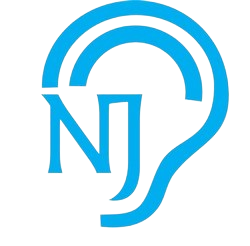Dysphagia Therapy (Swallowing Therapy)
Dysphagia Therapy (Swallowing Therapy): Regaining Safe and Efficient Swallowing
Dysphagia, also known as swallowing difficulty, can impact your safety and well-being. It arises from challenges in coordinating the complex muscles involved in moving food and liquids from your mouth to your stomach. Dysphagia therapy, a specialized form of speech-language pathology, helps individuals regain safe and efficient swallowing abilities.
Who Needs Dysphagia Therapy?
Dysphagia can affect people of all ages due to various reasons, such as:
Stroke or Brain Injury: Damage to the parts of the brain responsible for swallowing control can lead to dysphagia.
Neurological Conditions: Diseases like Parkinson’s disease or ALS can affect muscle coordination and cause swallowing difficulties.
Head and Neck Cancer: Surgery or radiation treatment for head and neck cancers can impact swallowing muscles and function.
Esophageal Issues: Certain esophageal conditions like strictures or achalasia can hinder the passage of food.
Signs and Symptoms of Dysphagia:
If you experience any of the following, you might have dysphagia and should consult a doctor or speech-language pathologist for evaluation:
Coughing or choking during or after swallowing
Drooling of food or liquids
Difficulty initiating swallowing
Feeling like food gets stuck in your throat
Painful swallowing
Taking a long time to finish a meal
Unexplained weight loss due to difficulty eating
The Importance of Early Intervention:
Early diagnosis and treatment of dysphagia are crucial. Left untreated, dysphagia can lead to:
Aspiration Pneumonia: Food or liquids entering the lungs, causing infection.
Dehydration and Malnutrition: Difficulty swallowing can lead to inadequate intake of fluids and nutrients.
Reduced Quality of Life: Dysphagia can significantly impact your ability to enjoy food and participate in social activities.
Goals of Dysphagia Therapy:
Dysphagia therapy focuses on achieving several key goals:
Improving Swallowing Safety: Therapy techniques aim to strengthen and coordinate the swallowing muscles, reducing the risk of aspiration.
Enhancing Swallowing Efficiency: Therapists help individuals learn strategies to manage food consistency, improve oral motor skills, and optimize swallowing mechanics.
Maximizing Nutritional Intake: Therapy can help individuals maintain adequate hydration and nutrition despite swallowing difficulties.
Restoring Quality of Life: The ultimate goal is to empower individuals with dysphagia to enjoy food safely and participate fully in mealtimes.
The Dysphagia Therapy Process:
A typical dysphagia therapy program at Navjeevan involves:
Comprehensive Evaluation: Our SLPs will conduct a thorough evaluation to assess your swallowing function, including a clinical swallowing exam and possibly instrumental evaluations like video fluoroscopy (a special X-ray that allows visualization of swallowing).
Personalized Treatment Plan: Based on the evaluation results, we create a customized therapy plan that addresses your specific swallowing weaknesses. This might involve exercises to strengthen oral motor skills, practicing safe swallowing techniques with different food and liquid consistencies, and compensatory strategies to improve overall swallowing efficiency.
Collaboration with Medical Team: Our SLPs work closely with your doctor, dietician, and other healthcare professionals to ensure a coordinated approach to managing your dysphagia.
Living with Dysphagia:
While there might not be a complete cure for dysphagia, therapy can significantly improve your swallowing abilities and quality of life. With ongoing support and management strategies, you can learn to enjoy food safely and confidently.
Navjeevan: Your Partner in Swallowing Rehabilitation
At Navjeevan, we understand the challenges of dysphagia. Our experienced SLPs are dedicated to helping you regain safe and efficient swallowing. We provide compassionate and personalized therapy programs to empower you to enjoy mealtimes without worry. Contact us today to schedule a consultation and discuss how we can help you manage your dysphagia
